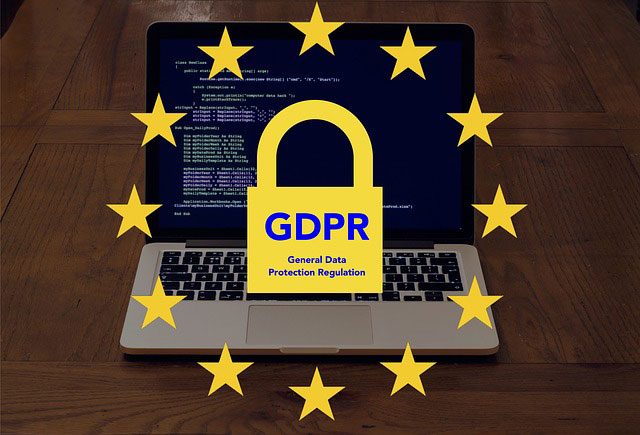How best to protect the autonomy of personal data in this new digital era has been an important issue, both in the political and business spheres. For translation companies, the operation of which largely depends on handling and processing large amounts of private information, the new laws and regulations around data protection are going to be of utmost significance. So, what exactly does the General Data Protection Regulation, coming in effect from the 25th of May 2018, entail and what should we know about it? Here are the most important points a translator needs to remember in order to be compliant with the new rules.
GDPR for translation companies
The aim of the new GDPR is to ensure that individuals’ data is protected while being processed online and to make the free movement of this data around the Internet more secure. It is concerned with the right of EU citizens to object, access, and set limits to the processing of the information they have chosen to enclose online. The main idea of the GDPR is to give more control and clarity to the people about what goes on with their data once it has been shared with a third-party company.
 This law is of specific importance for translation companies and language service providers, who are trusted with sensitive information about their clients private or business affairs. While privacy and transparency have always been a priority for us as a renowned translation service, now the stakes to keep the private information protected are even higher- the GDPR is not simply a recommendation from the European Parliament, but an active law which will lead to sanctions if not correctly followed. Therefore, it is important for all data collection and processing practices of translators to be revisited and reformed, in order to ensure that they comply with the rules enforced by the GDPR. This is a good way for every company or service to ensure to prove its trustworthiness to its customers and secure its further activities.
This law is of specific importance for translation companies and language service providers, who are trusted with sensitive information about their clients private or business affairs. While privacy and transparency have always been a priority for us as a renowned translation service, now the stakes to keep the private information protected are even higher- the GDPR is not simply a recommendation from the European Parliament, but an active law which will lead to sanctions if not correctly followed. Therefore, it is important for all data collection and processing practices of translators to be revisited and reformed, in order to ensure that they comply with the rules enforced by the GDPR. This is a good way for every company or service to ensure to prove its trustworthiness to its customers and secure its further activities.
Similarly, if you are an individual seeking the services of a LSP, you will most probably trust those operating in a member state of the EU that complies with the Data Protection laws and practices. Even if you have worked with the company before, it is worth checking whether they are aware of the new regulations coming into effect, the noncompliance with which might cost the firm 4% of its total annual turnover. Furthermore, since LSPs often subcontract a translation to an external translation provider, those individuals should also be compliant with the new regulations.
How to make sure I comply with the GDPR?
While the new regulations and strict sanctions might seem intimidating, it is likely that you already have taken into consideration the main points of the new law. To ensure your full compliance with the regulations, though, we recommend taking a few additional measures:
- Reviewing pre-existing policies and regulations: our main recommendation is to review your pre-existing data regulation policies and see what kind of changes, if any, need to be made. This is the most certain way of avoiding any potential sanctions and fees over data malpractices.
- Assessing your vulnerability – whatever the size of your company and the number of customers you are dealing with, you can always become a target of potential cyber-attacks. Hence why it is necessary to ensure you are complying with the GDPR’s requirements and to test your company’s vulnerability against possible breaches into its database. By having a reliable security software and the latest operating system, you can significantly reduce the chances of becoming the victim of hackers. Taking into your own hands the protection of your customers’ data is a great way to showcase your company’s responsibility towards their security and well-being.
Machine Translation and the GDPR
Google, the developer of the ubiquitous machine translation service Google Translate, has already taken measures to ensure that the software will be fully compliant with the new regulations when they come into effect. That being said, for the users of its services, it is recommended to actually read through Google Translate’s terms and conditions to gain an understanding of how far the company goes in collecting and storing its customers’ data.
Overall, the General Data Protection Regulations aim to create a safer space online for the transmission of data between customers and companies and for a more transparent way of initiating transactions. At 1-StopAsia, we take seriously each of our customers’ requests and it has always been our primary incentive to keep their data and privacy well-protected. Similarly, if a translation company is serious about its work and reputation as a reliable service provider, the GDPR can be a helpful guide in making sure all rules and regulations are being correctly followed.
